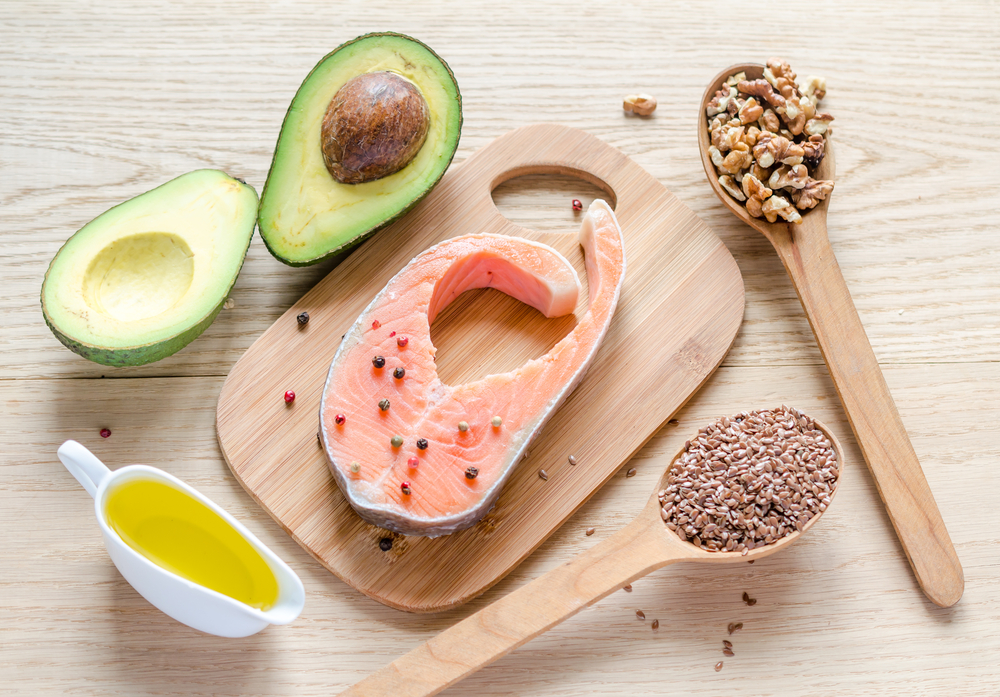Omega 3’s in Pregnancy
If there’s one thing you shouldn’t miss out on during pregnancy its omega 3 fatty acids. Unless you’ve been living under a rock, you would have heard about the wonders of omega 3 fats, and how important they are for our overall health. And not just in pregnancy that is. Omega 3 fatty acids are found primarily in oily fish (such as salmon, tuna, anchovies, etc), though there are some plant sources such as flax, chia and hemp seeds.
But what’s all the hype about?
Omega 3’s are essential fats that our bodies cannot produce. We require them for a number of processes such as making hormones, regulating blood clotting, maintaining adequate cholesterol, heart and brain health and much, much more. During pregnancy omega 3’s are very important for the adequate development of the baby’s eyesight, brain and central nervous system. Studies have also linked adequate omega 3 intake during pregnancy to higher child IQ scores. Not only that, but research has shown that it also helps reduce the risk of pre-term labour, pre-eclampsia, and babies born low in weight for their gestation. If you need any more reasons to eat your fish, omega 3’s appear to reduce the risk of post-partum depression too.
A quick science lesson…
Without getting too technical, all omega 3’s are not created equal. There are 3 main types; EPA, DHA and ALA. You’ll find EPA & DHA in oily fish, while ALA comes primarily from vegetable sources, but also in small quantities in grass fed animal fat. What you need to know is that EPA & DHA types are readily available for the body to use as omega 3’s. ALA on the other hand, is generally just converted into energy (as with other fats), and only a small amount is converted into EPA & DHA. From the research, it appears that EPA & DHA also show the biggest difference when it comes to health benefits.
What about the mercury?
Mercury in fish is an important concern that in high enough quantities can have damaging effects on both maternal and fetal health. This is why it is recommended that you have 2 (but no more) portions of oily, low mercury fish per week. At these quantities mercury levels are thought to be low enough to avoid negative health impacts, but still provide you and your baby with enough omega 3’s for adequate health and growth. You may also choose to supplement with omega 3 fatty acids, instead of eating fish. High quality supplements are filtered to remove most of the heavy metals such as mercury, but beware as supplements are often found to have lower quantities of EPA & DHA than they say on the pack.
Low mercury, oily (omega 3 rich) fish are as follows: Salmon (especially wild), anchovies, mackerel, herring, sardines, and rainbow trout
Avoid large fish such as swordfish, shark, tile, and king mackerel as these contain higher amounts of mercury
And if I’m vegetarian/vegan?
Seaweeds have been found to have good amounts of DHA, but unfortunately no EPA. However ALA (remember the vegetable sources of omega 3’s?) is more likely to convert into EPA (though still in small quantities), so eating seaweed together with your chia or hemp seeds is the best way to increase your omega 3 profile. However, this still seems to be inadequate to reach optimal levels. You can also find vegetarian and vegan supplements with EPA & DHA, so that’s probably your best bet.
Vegetable sources high in ALA: Chia seeds, flax/lindseeds, hemp seeds, walnuts, seaweeds
To conclude…
Omega 3 fatty acids are very important for our health and fetal development. You should be eating at least, but not more than, two portions of oily, low mercury fish per week (see list above) while pregnant and breastfeeding (and throughout your lifetime, really). Otherwise, or if you are vegetarian, choose a high quality EPA & DHA supplement to take throughout your pregnancy and whilst breastfeeding to help reap the health benefits of this important lipid.

